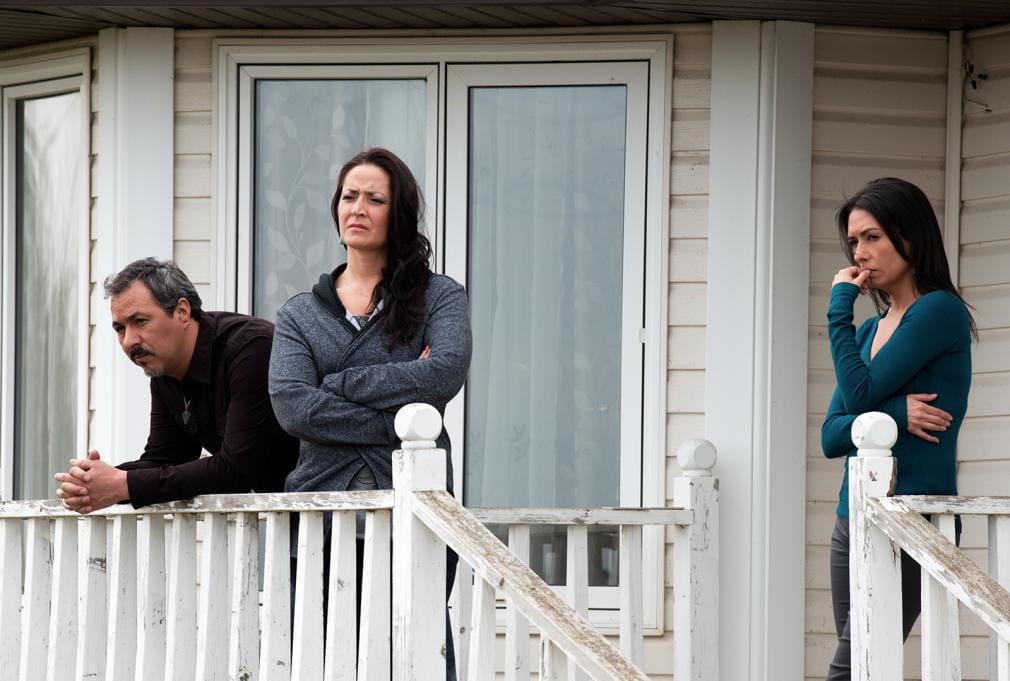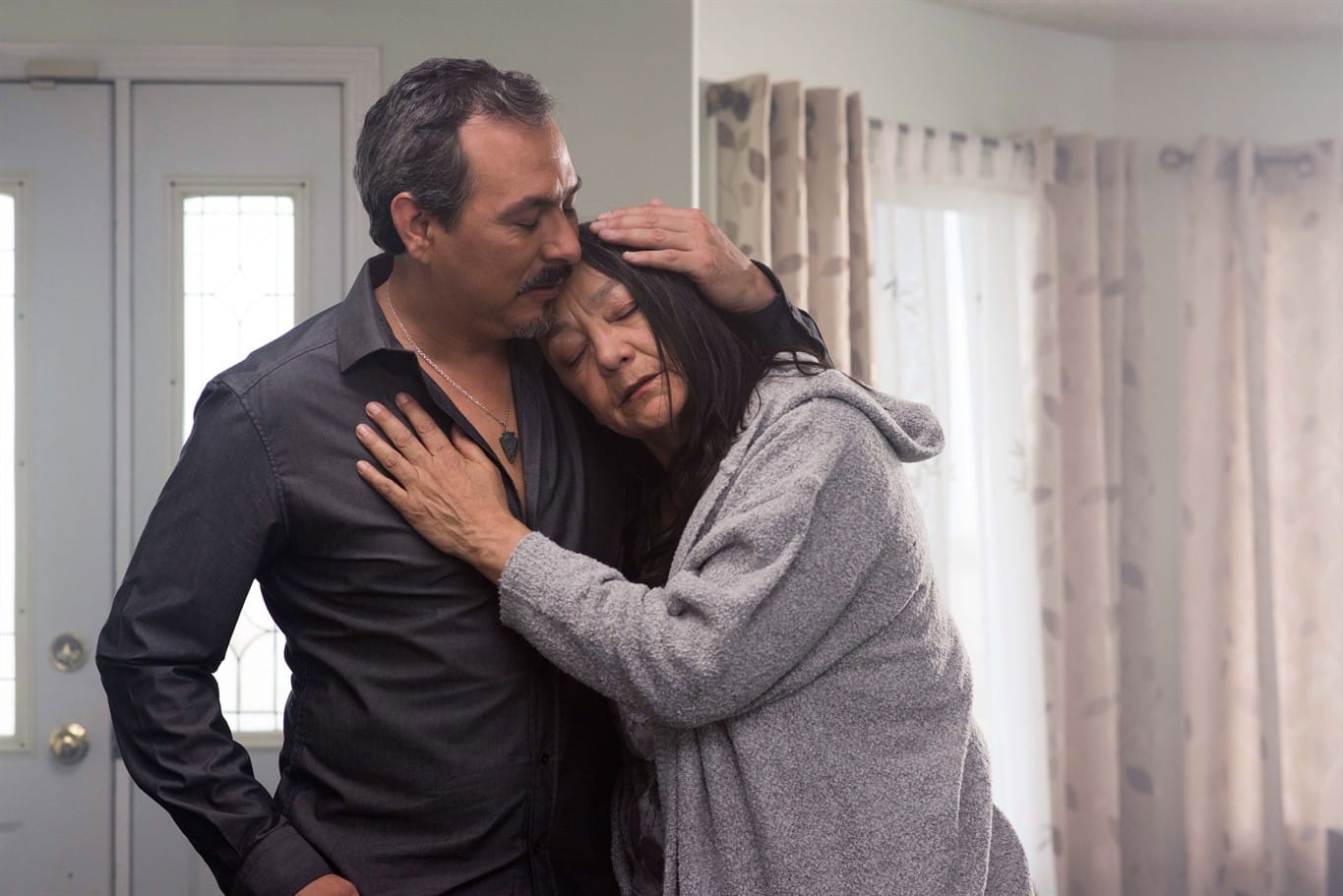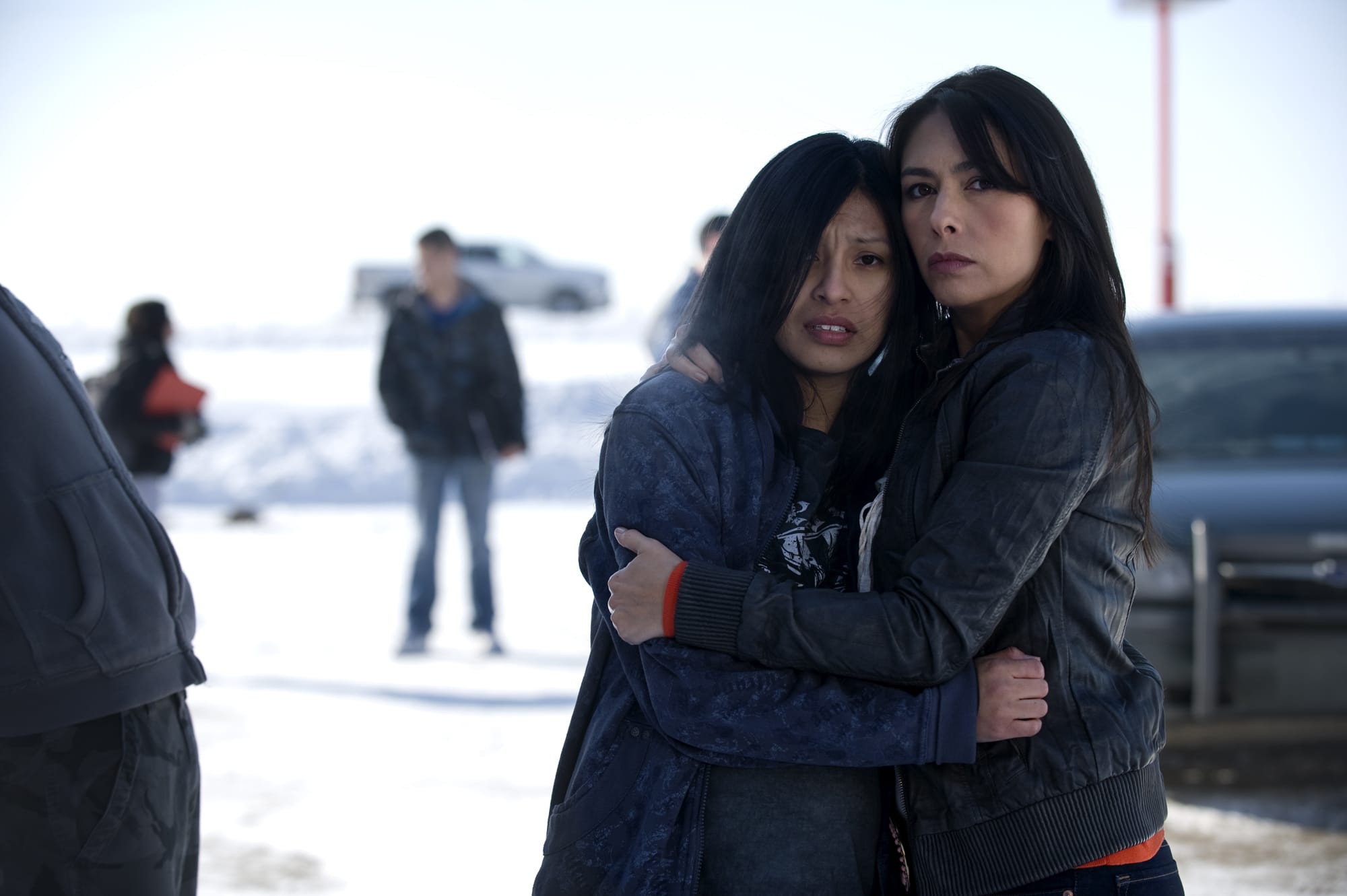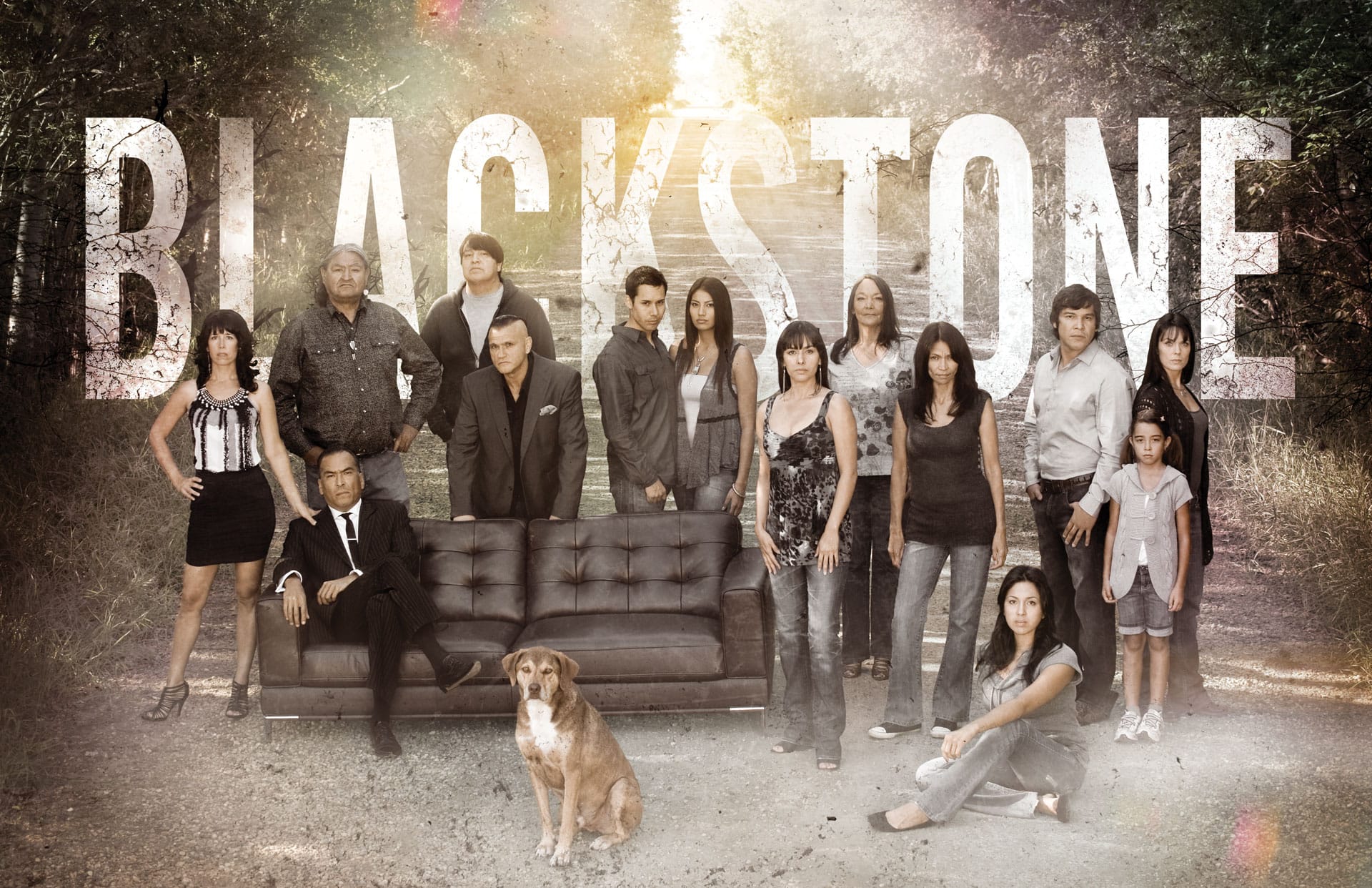Read why Blackstone gets grouped alongside some of the best top-notch dramas of today.
It is not just good Canadian television — it is excellent TV period.
Poverty. Crime. Substance abuse. Rape. Corruption. Death. It’s not the inner city, but the despair and desperation is the same. It’s not The Wire, but it can stand right up to it.
This is Blackstone.
In the world of cable cutting and web-based content, it is easy to completely miss excellent programs. Luckily, it can be even easier to binge watch the whole thing, which is fantastic. When you happen upon a well crafted program, you don’t want to wonder what you missed before, or have to re-arrange your life to catch have to re-arrange your life to catch the next episode, like in the bad-old-days.
Blackstone is one of those series you may have missed or dismissed. It faces challenges getting audience attention: Canadian, airs on APTN, and set on a First Nations reserve. Let’s be honest, even after some great successes and excellent contributions, the words ‘Canadian Television’ still fill our heads with The Littlest Hobo and The Beachcombers. Most cable subscribers probably don’t even know they have APTN. And when you put those two together — Canadian program and Aboriginal television —most people are going to think of some badly executed, community television-type series.
But this is different. This is Blackstone.
There have been a number of popular First Nation’s-based series over the years, North of 60 and The Rez to name a couple.
But there was always an awkwardness about the portrayal of First Nations people: you never got the sense that what you were watching a depiction of reality. It was more a sanitized, TV self-censored distortion; something cleaned up so as not to offend. And even the previous highly commended programs often fell victim to stereotyping Aboriginal people or plots, which fed the very perceptions they were working against. Blackstone does none of that. Blackstone turns its camera on a community and shows it, warts and all. There are no “noble but tragic Indians” here — just the tragedy. And while North of 60 and The Rez helped wear away at the wall between Native and non-Native communities, chipping away with hammers and chisels, Blackstone takes on that wall with TNT.
Blackstone could be any rural town in Canada, laden down with high-employment and its associated poverty problems. If you grew up, or even just spent time, in outport Newfoundland, a mining town after the company left, or any other similar location, Blackstone is going to have a familiar feel. As will the characters, from the down-and-outs to the where’re-they-getting-all-that-money? Nearly every aspect of Blackstone is familiar like that. Because Blackstone is not about Aboriginal people. It’s about people. Human beings in desperate, often tragic, but real, life.
Blackstone could be any rural town in Canada, laden down with high-employment and its associated poverty problems.
Which is not to say the show is depressing. Similar to The Wire and other programs, it achieves intense drama through staying real. The steadicam work gives you the interlopers perspective, which aides that. Some of the issues are ripped from the headlines: gas sniffing, residential schools, political corruption… though that last one is hardly restricted to First Nations communities. That brings me back to that eradicated cultural barrier: corruption, booze, drugs, youth with nothing to do, people feeling trapped in their community, petty bickering… those are issues human beings face, not Aboriginal issues. With very scant changes, Blackstone could be a Welsh mining town, a Serb village, someplace in Africa, an island off Argentina… well, you get the point. It’s the universality of these stories that makes Blackstone so viewable. You don’t need to know First Nations people any more than you do Baltimore projects or Halifax Trailer Parks or the homeless in Seattle.
Blackstone is unabashedly First Nations, don’t misunderstand me. And you will learn about the issues, same as with those other shows, because Blackstone doesn’t shy away from them either. It tears off the bandages, picks off the scab, and shows you the wound. You see the despair behind the substance abuse, and the results of it. You learn enough about residential schools to see how their impact is still being felt, how the program destroyed lives and communities. You get some history of land claims and how the government treats First Nations. There’s water problems, housing issues, government audits, conniving oil companies. You’ll learn some Cree, even. Blackstone doesn’t lecture though. It neither excuses nor condemns, it simply presents. It gives you just enough of a look at the reality of reserve-life to send you googling for more details.
Blackstone is unabashedly First Nations, don’t misunderstand me. And you will learn about the issues, same as with those other shows, because Blackstone doesn’t shy away from them either.
It’s difficult to sum up the series in a few words. Blackstone is a character-driven drama about the people who are members of the fictional Blackstone First Nation. It is set on a reserve in rural Alberta, about an hour or so drive from “the city” (presumably Edmonton, where the show is filmed). There’s conflict between two families, the Frasers and the Stoneys. There’s all the societal problems that go with poverty and with being First Nations. There’s a fantastic plot device, which I won’t reveal, but is excellent at pushing the storyline. There’s coming of age, coming home, coming to grips, and coming apart. It’s about death and life and survival. There’s all that, great writing, and some insights for the rest of us into what it means to be Aboriginal Canadian.
Above all, Blackstone is simply fantastic television: top notch ensemble acting, excellent direction, and riveting storylines. It’s gritty and gripping. Blackstone deserves a place alongside all those specialty channel dramas: The Sopranos, Deadwood, The Wire, and The Killing. It is not just good Canadian television — it is excellent TV period.
Unfortunately, it was announced on Monday that this will be the fifth and final season for Blackstone although the door is still open for perhaps a movie, or maybe something else. The new season starts on November 3, which means you have plenty of time to watch the first four seasons. And the great news? You can see them all free online at APTN here.
Read Original Article




